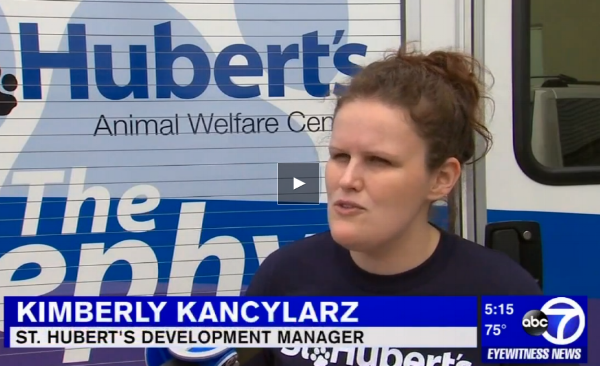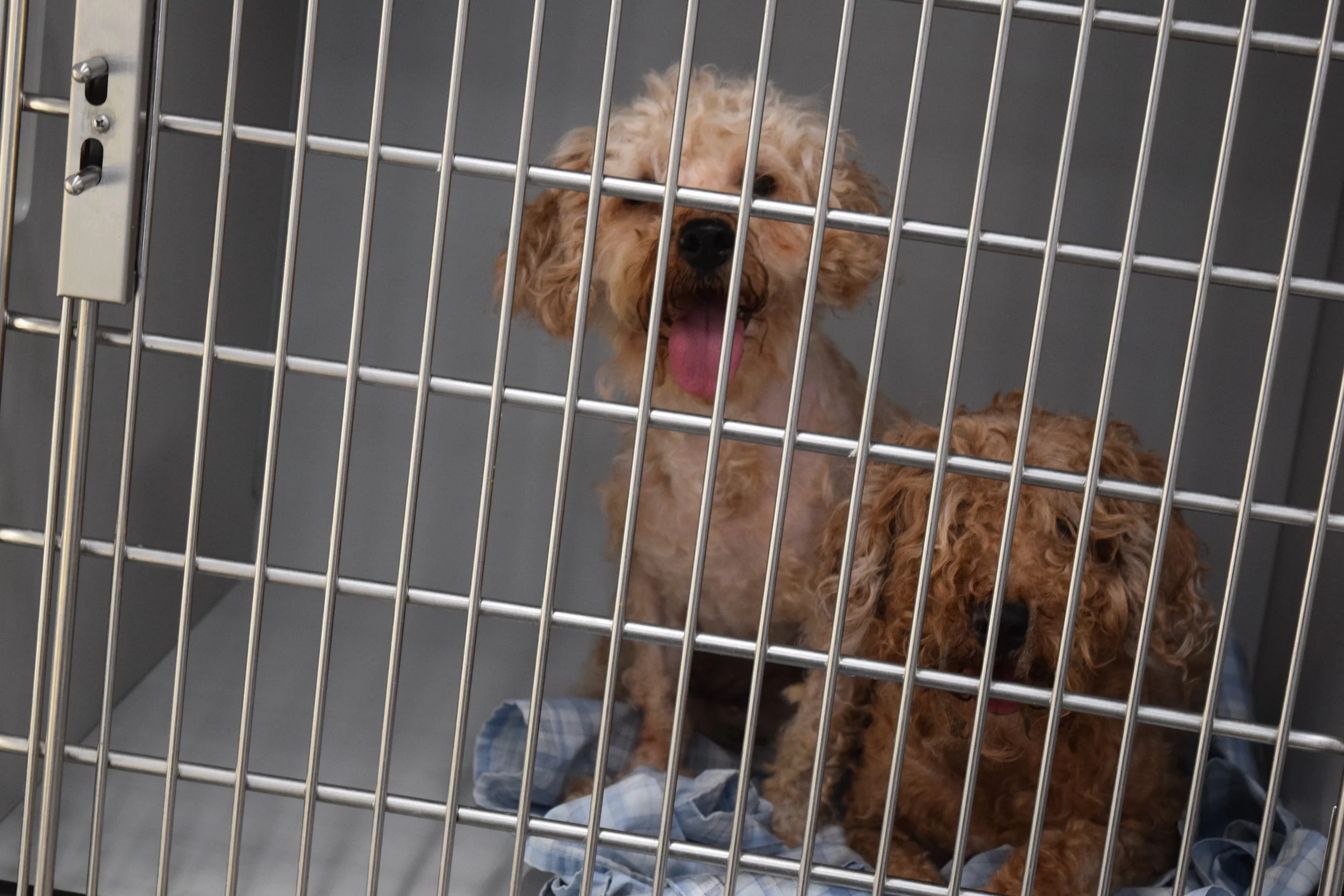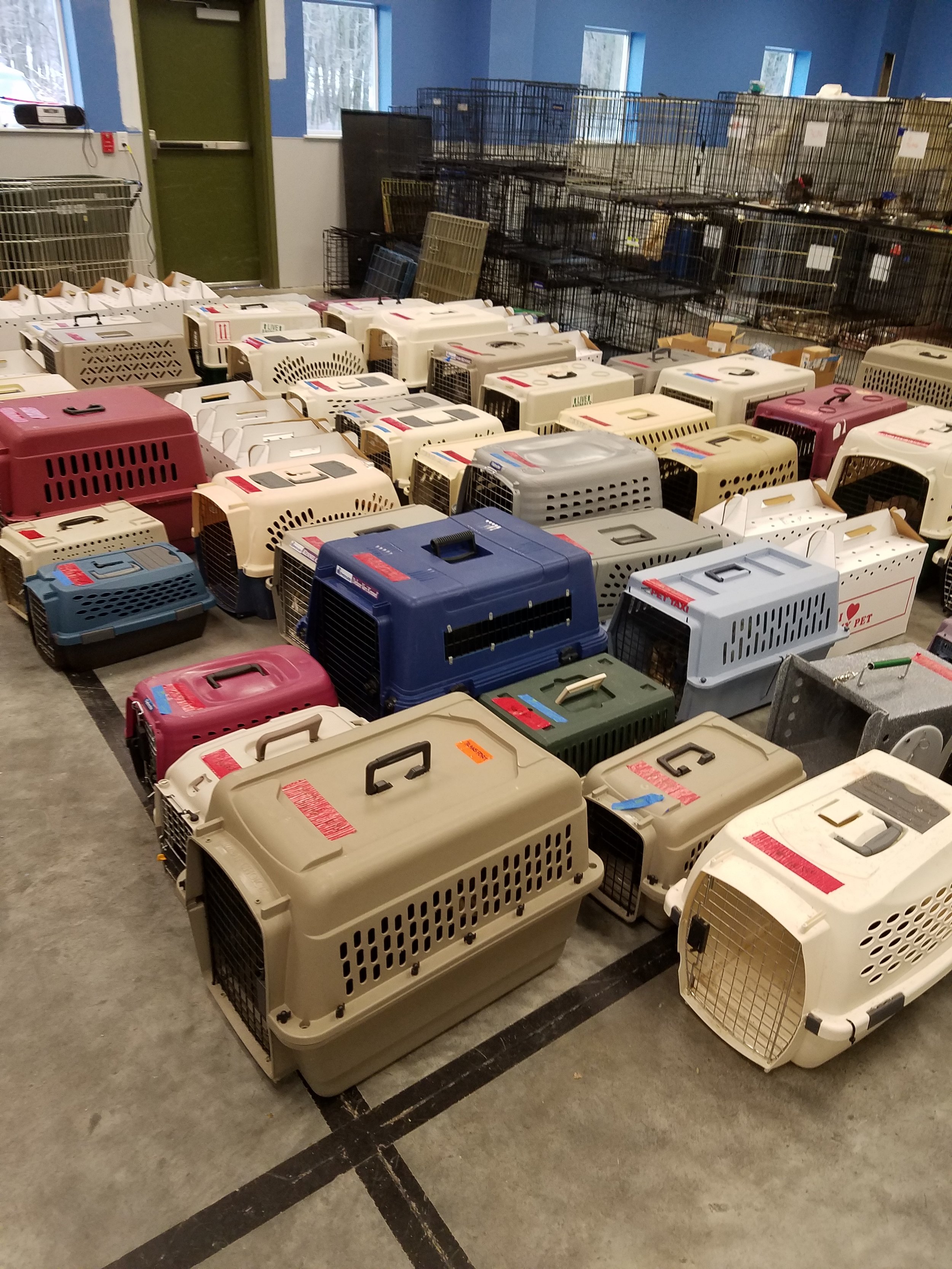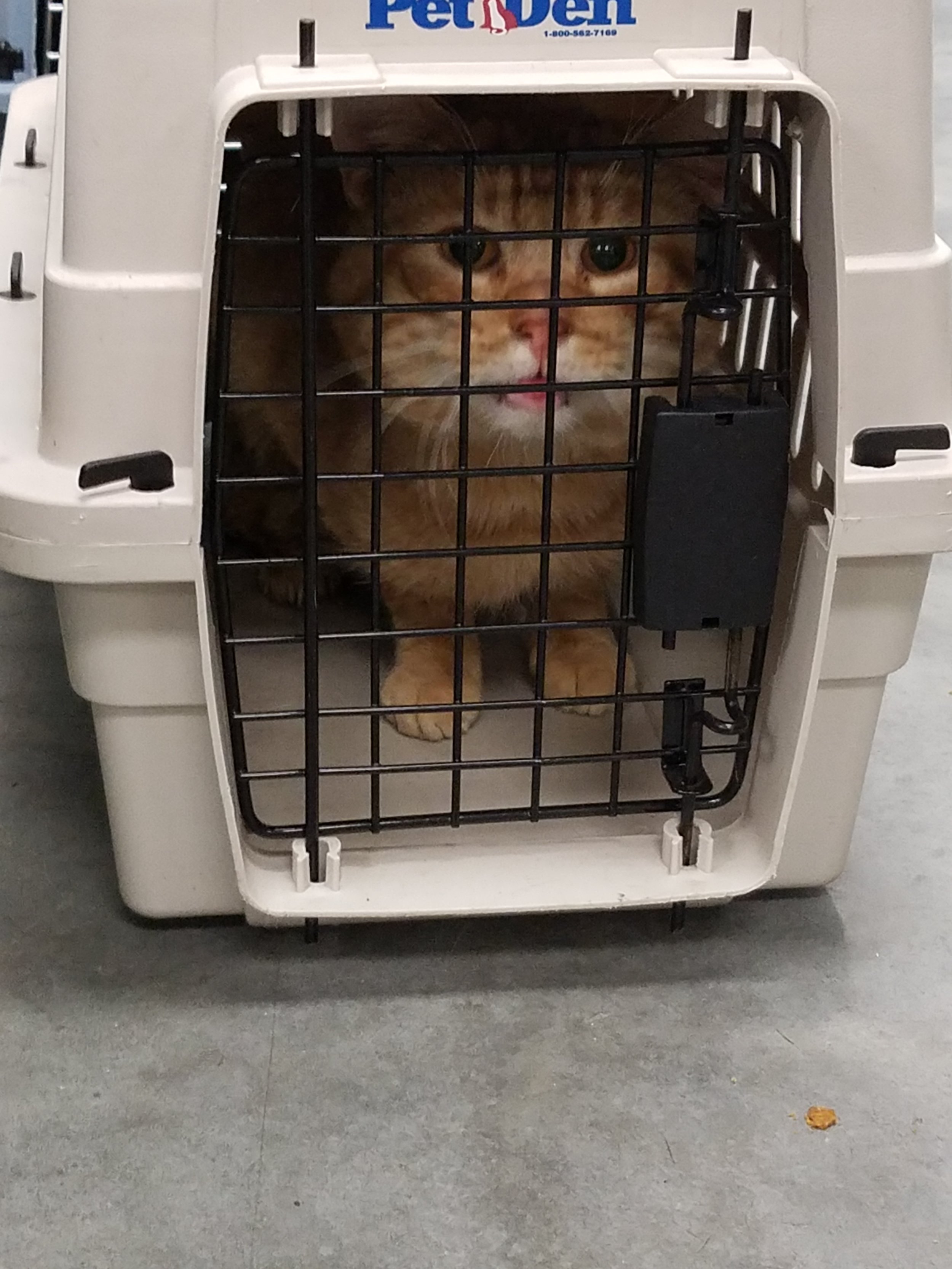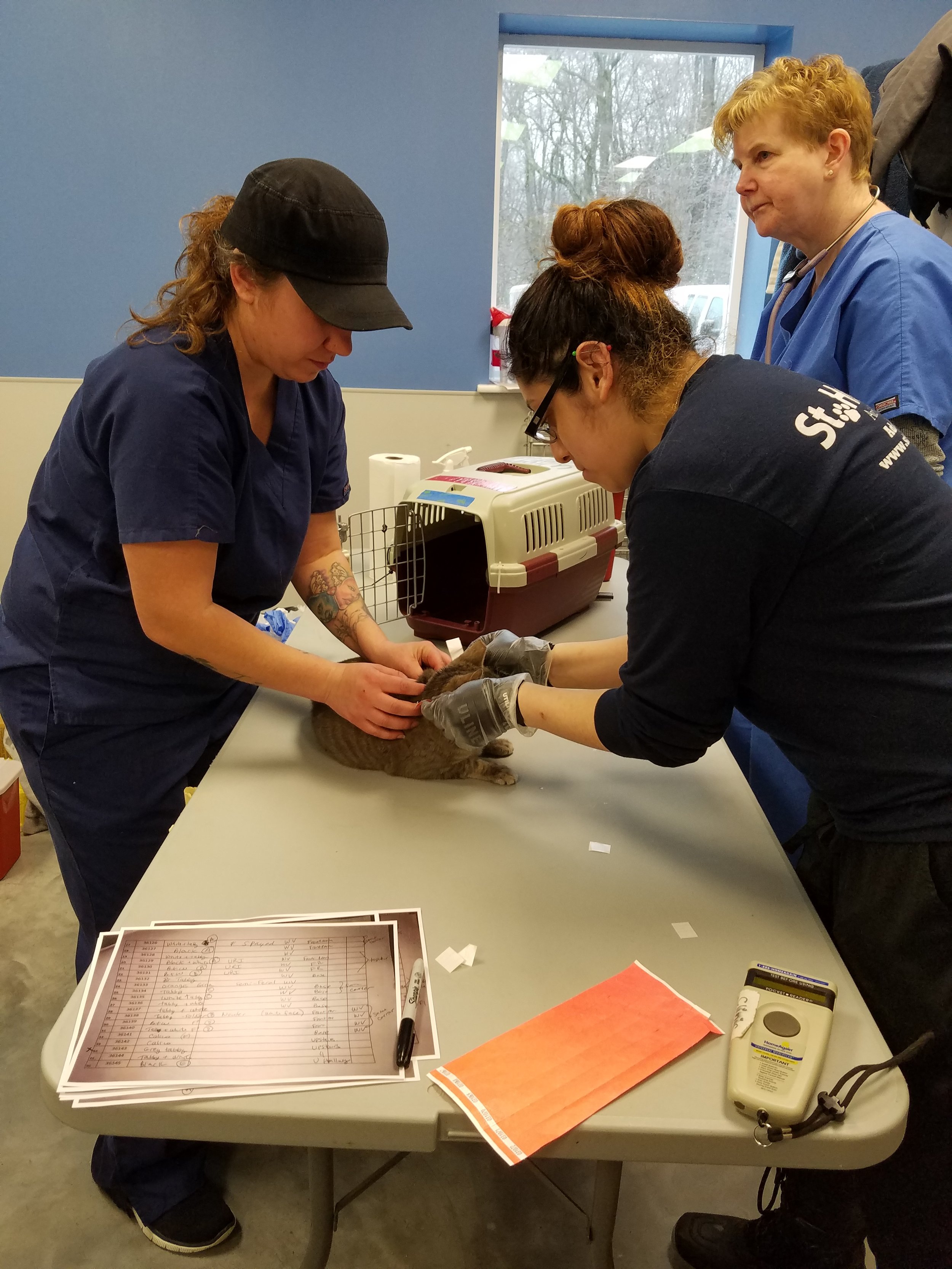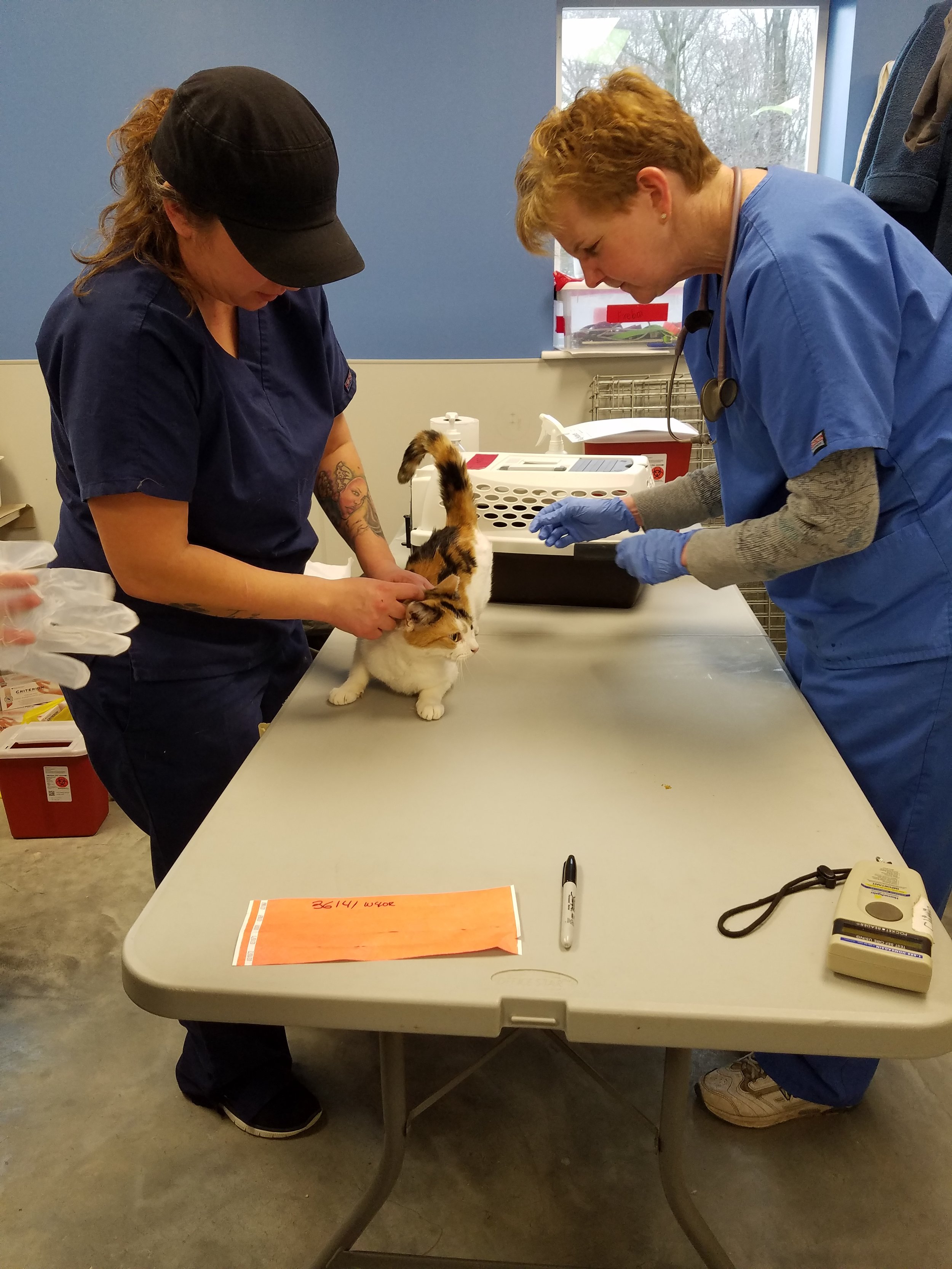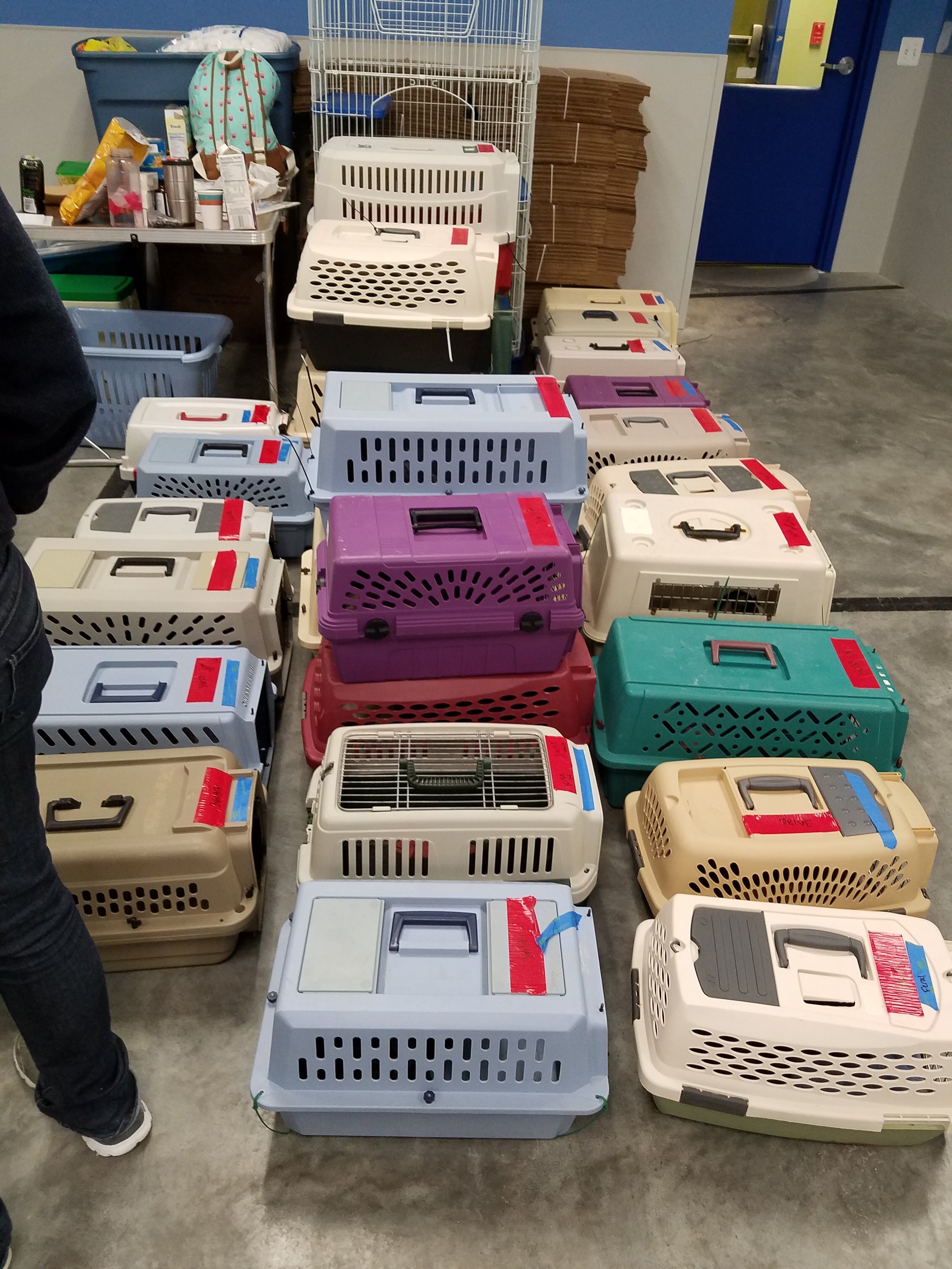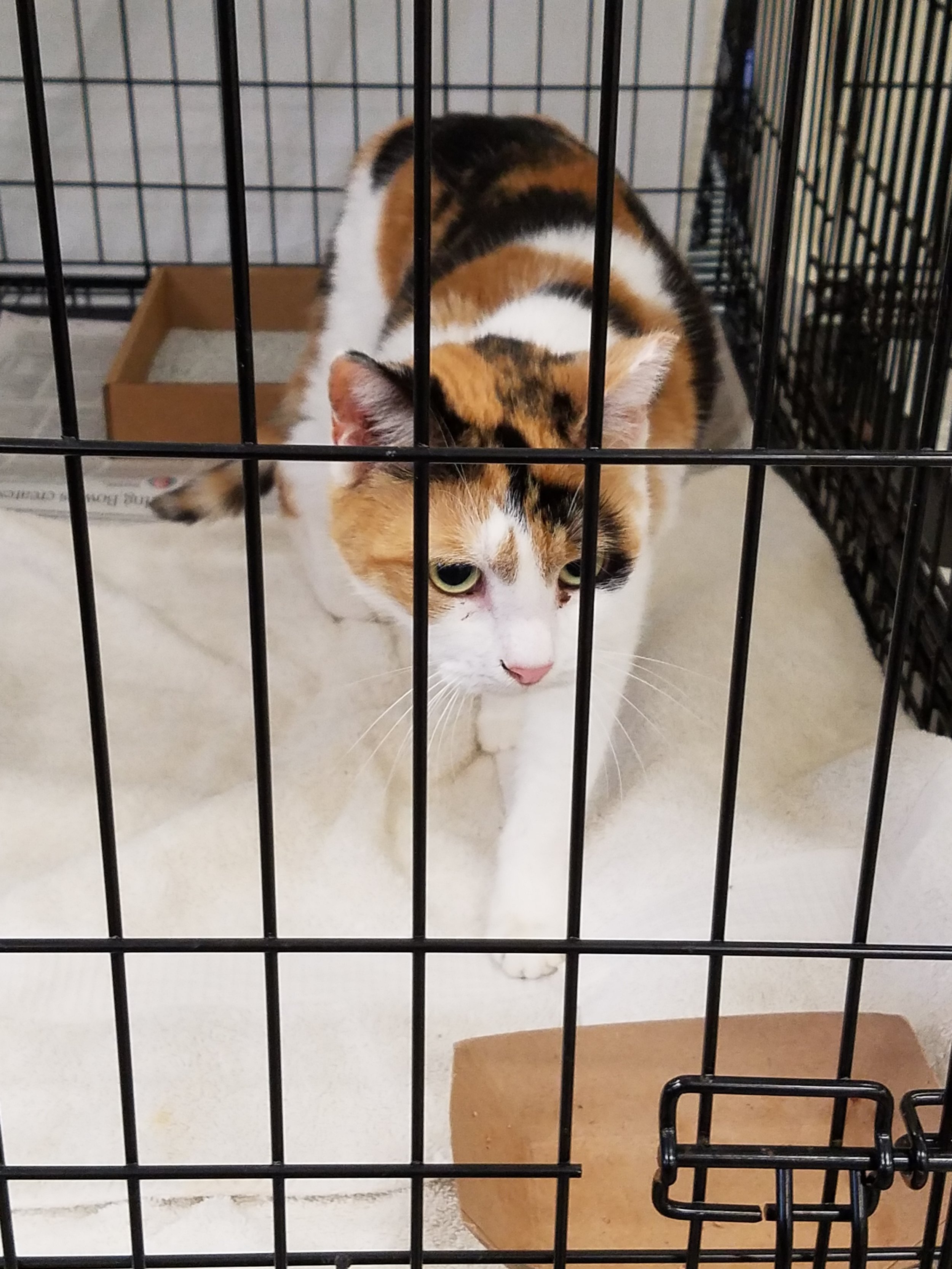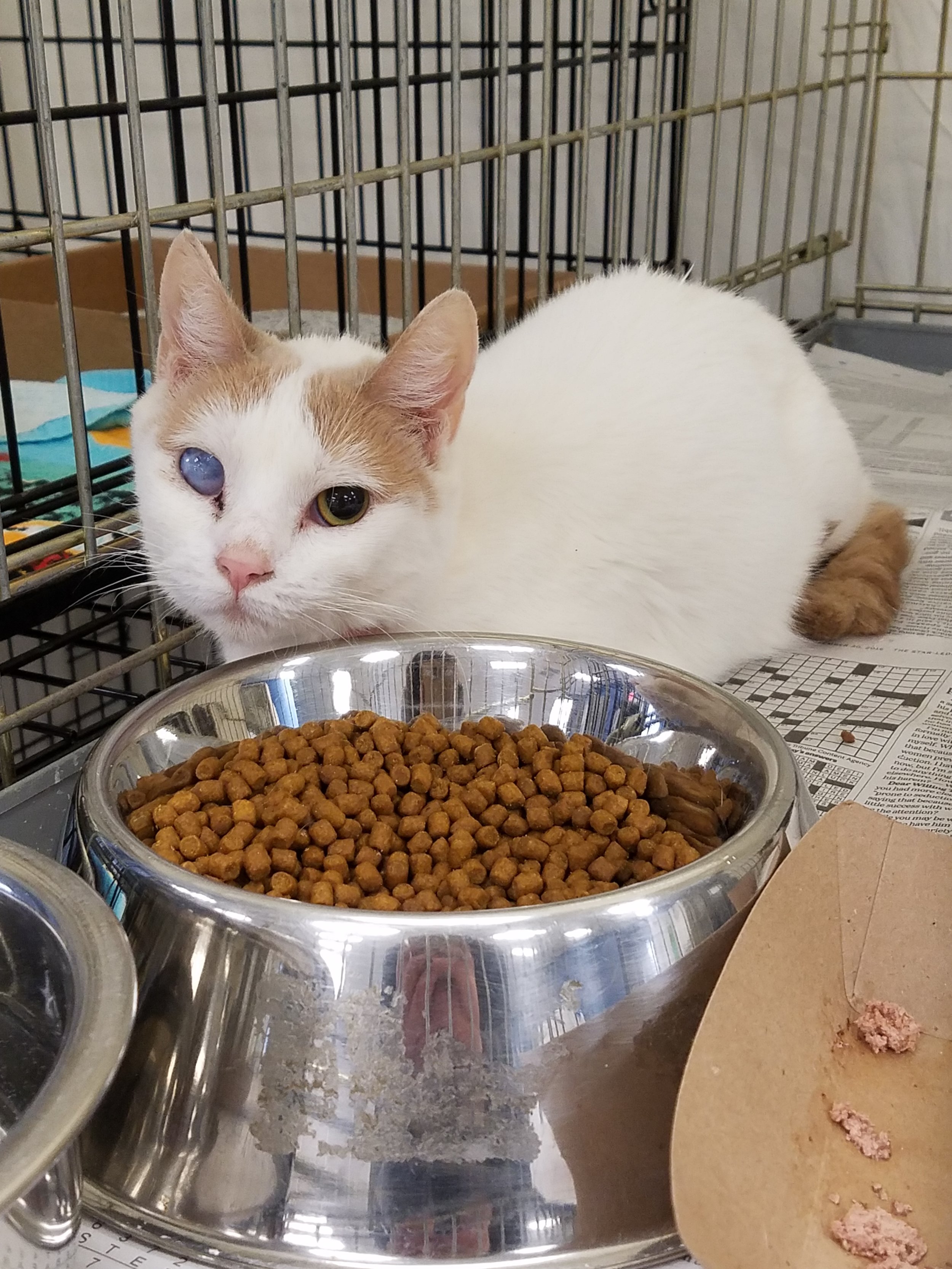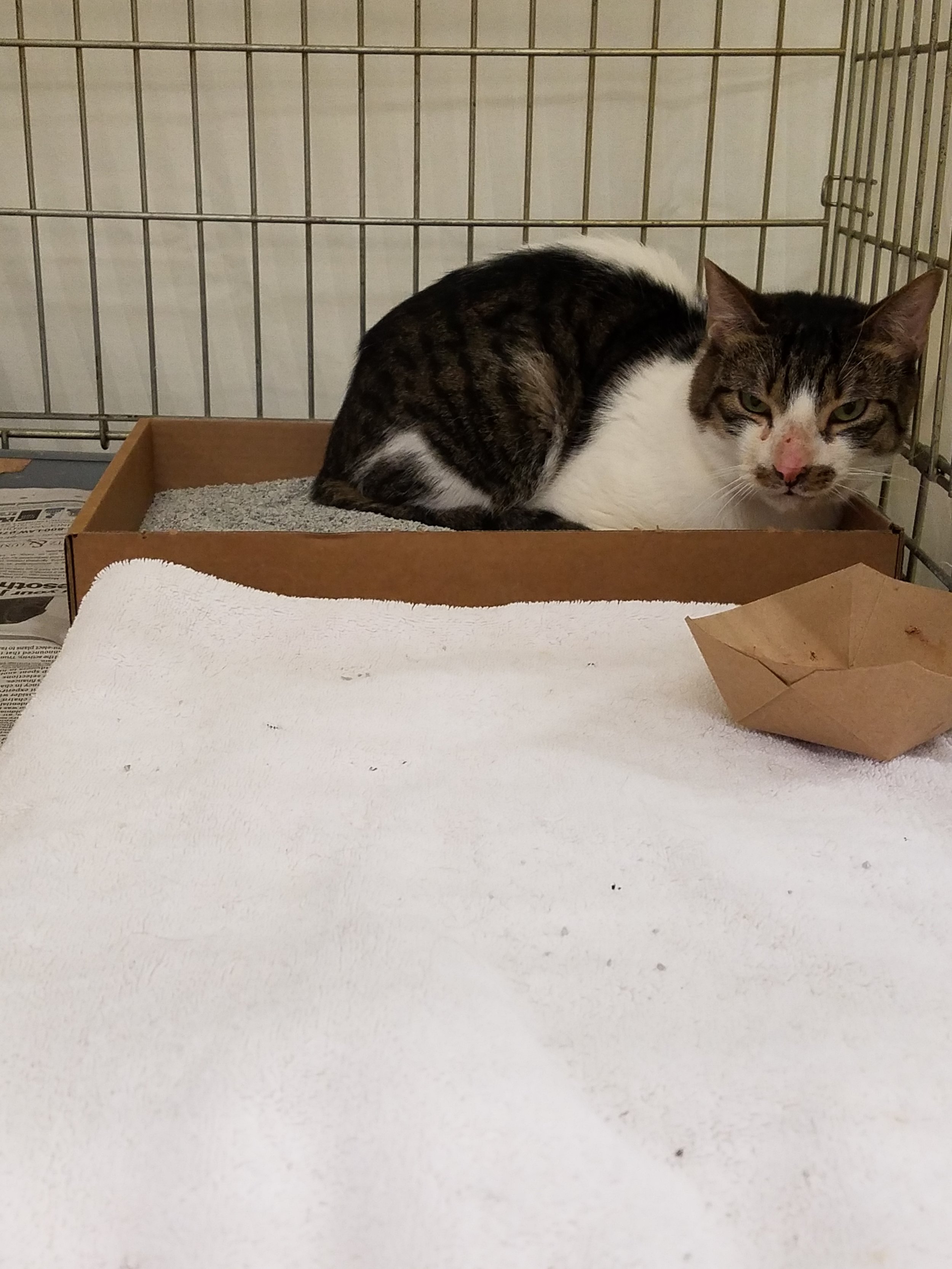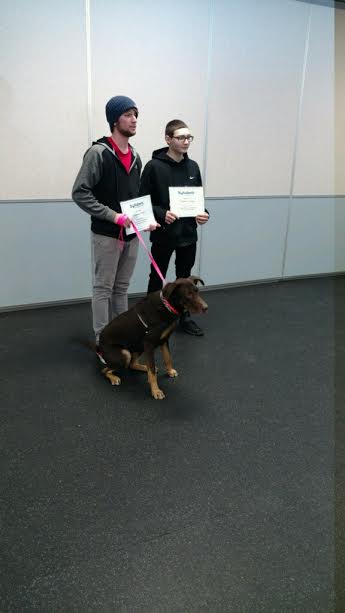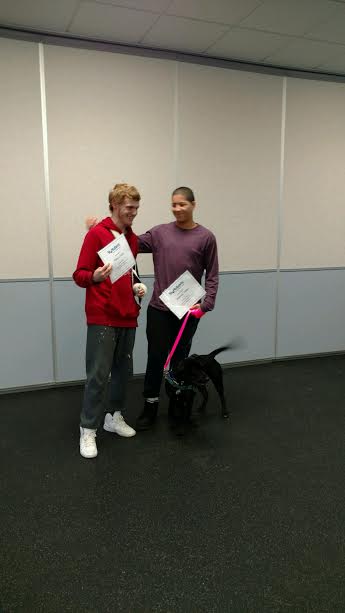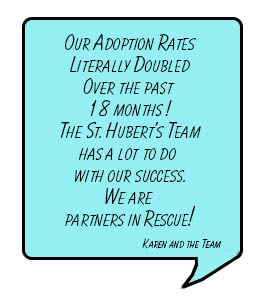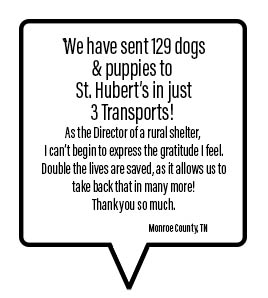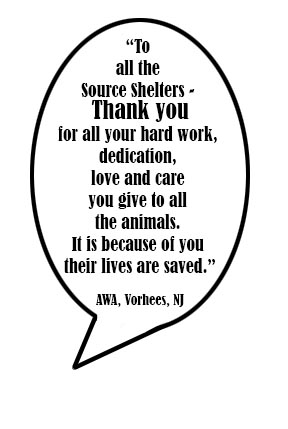UPDATE July 7
Our amazing friend Dr. Elia of The Animal Hospital of Roxbury and her vet tech Josie reorganized their schedules to come and assist our clinic team with examinations. Rock Stars!
Shampooches Pet Spa Mobile Grooming's Wallace and Erica rolled in first thing in the morning to provide grooming and
“sham-poodle-ing.”
The transition to the new lives they deserve is well underway for our sweet little poodles! Yesterday all of them were vaccinated and received preliminary exams, difficult at best due to the extreme matting, on intake.
All day Friday has been devoted to the arduous task of removing the years of neglect that resulted in coats deeply matted and soaked to the skin with feces and urine. One of the professional groomers assisting us said “I’ve NEVER seen anything like this—and I’ve seen a lot. It had to take YEARS for the condition to reach the point it has on some of these dogs.” Once they’re shaved down and bathed it’s easy to see how much better they feel, able to walk and extend their legs without the discomfort caused by the weight of the mats pulling against their skin. It’s been a long time too since most of them actually felt dry. More complete exams reveal that the majority of the dogs are middle aged and have severe tartar buildup that will necessitate dental scaling and polishing, some with extractions. Several will require treatment for ear infections and urine burns on their skin.
VP of Direct Animal Care and Life-Saving Partnerships Becky Burton took time to give each one a hug and complement the great new look.
Through it all this resilient group has remained patient and cooperative. They really enjoy the handling, special attention and companionship of the people helping them. We hope that they will begin to become available for meet and greet visits with potential adopters early next week and be able to head out to loving homes as soon as they’ve been spayed/neutered.
We’re so grateful to those who are donating to help us ensure that every little poodle will get everything he or she needs to be ready to enjoy a happy, healthy life. Our clinic and animal care teams are working tirelessly and we owe very special thanks to the compassionate and skilled professionals who took time out from their busy schedules to come in and donate their services to this special group.
Some got their makeovers courtesy of groomer Renee Haak!
Looking Good!!
Watch the ABC 7 News Coverage Here!
St. Hubert’s Animal Welfare Center has just welcomed 25 Poodles of various ages from dire straits in Hudson County and urgently needs donations to assist with their care and treatment. The dogs were discovered during an unrelated municipal inspection. The house where they were living was subsequently condemned. They were removed by Animal Control Officers from New Jersey Humane Society in West New York and transported to Summit Animal Clinic in Union City Wednesday night. Several of them were so severely matted that their coats were immediately shaved down to alleviate their discomfort.
After having obtained surrender of the dogs to NJHS, ACOs Geoff Santini and Fernando Rosario reached out to St. Hubert’s to request assistance in providing care and eventual adoption for the group. Within the hour staff had prepared the Center’s 26-foot transport vehicle, The Zephyr, and were enroute to pick up the entire group and bring them to the Madison shelter, where onsite staff were preparing for their arrival.
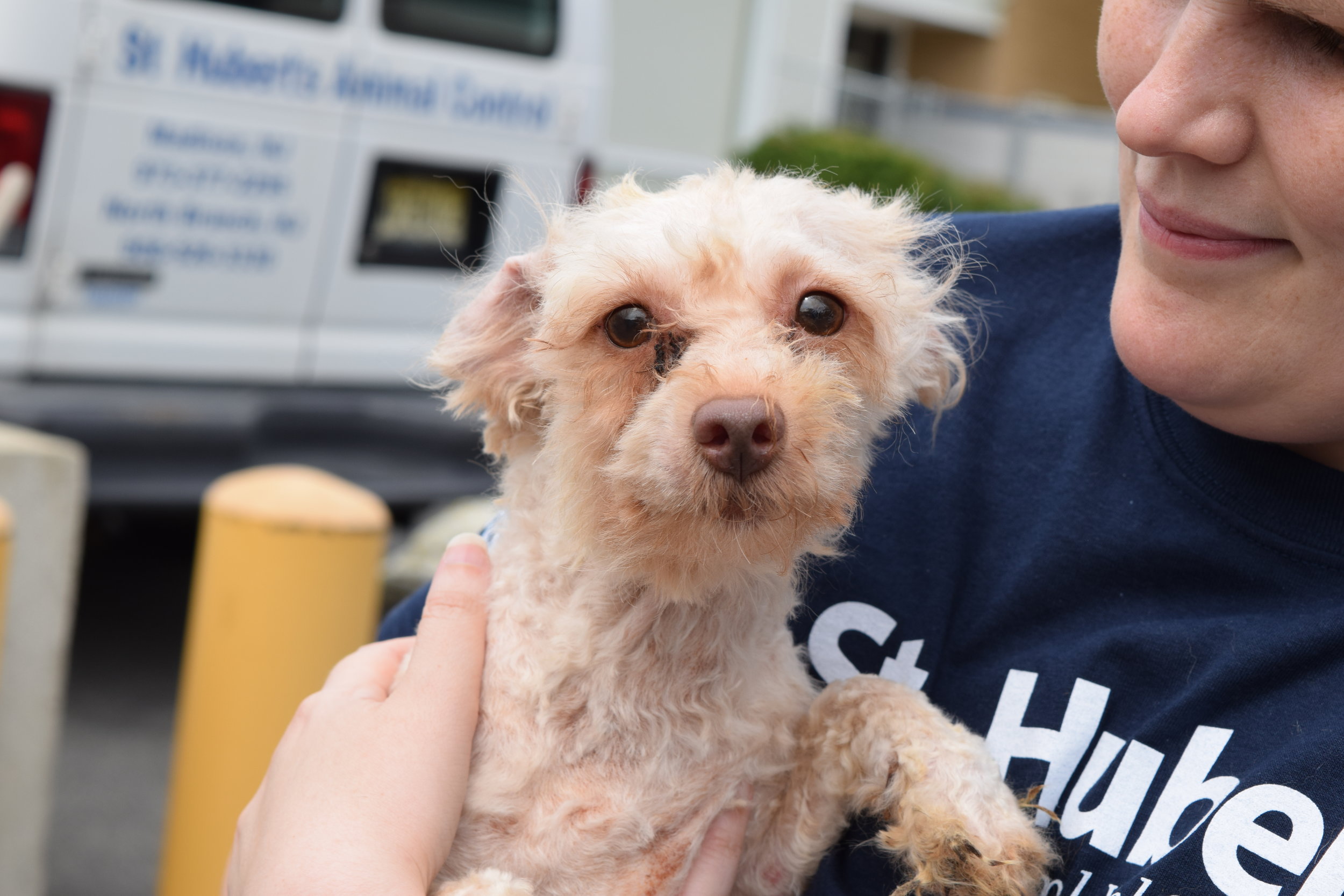
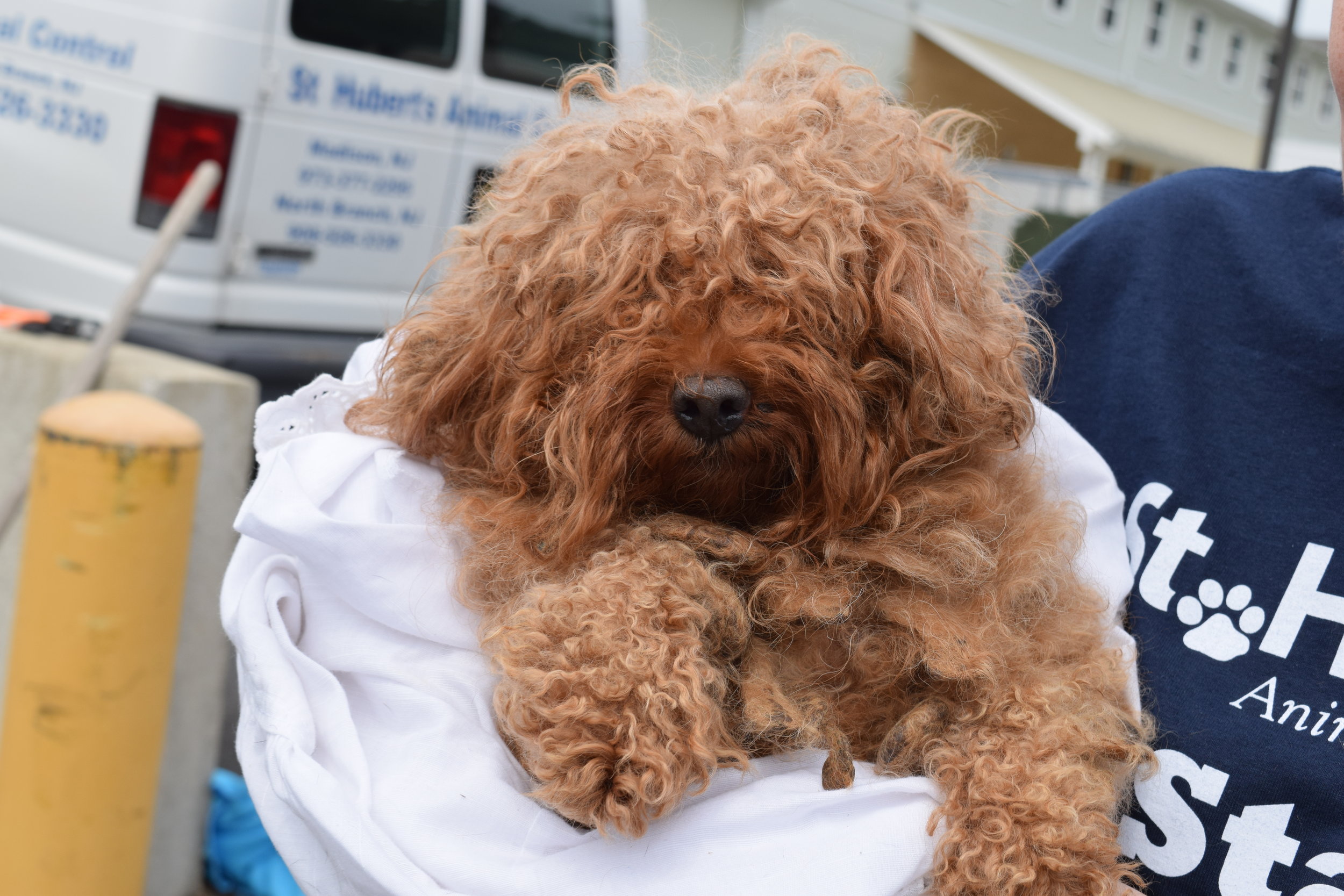
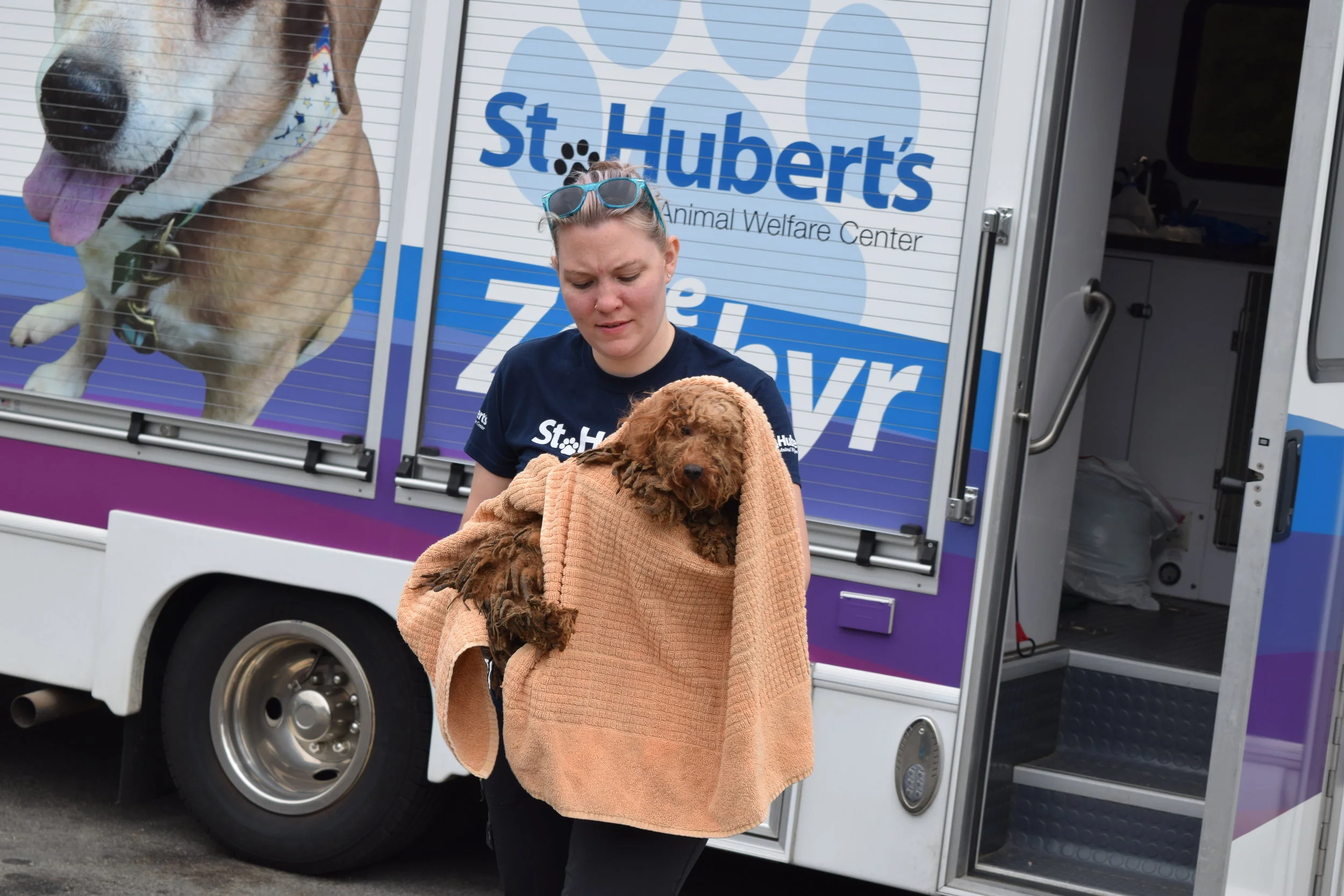
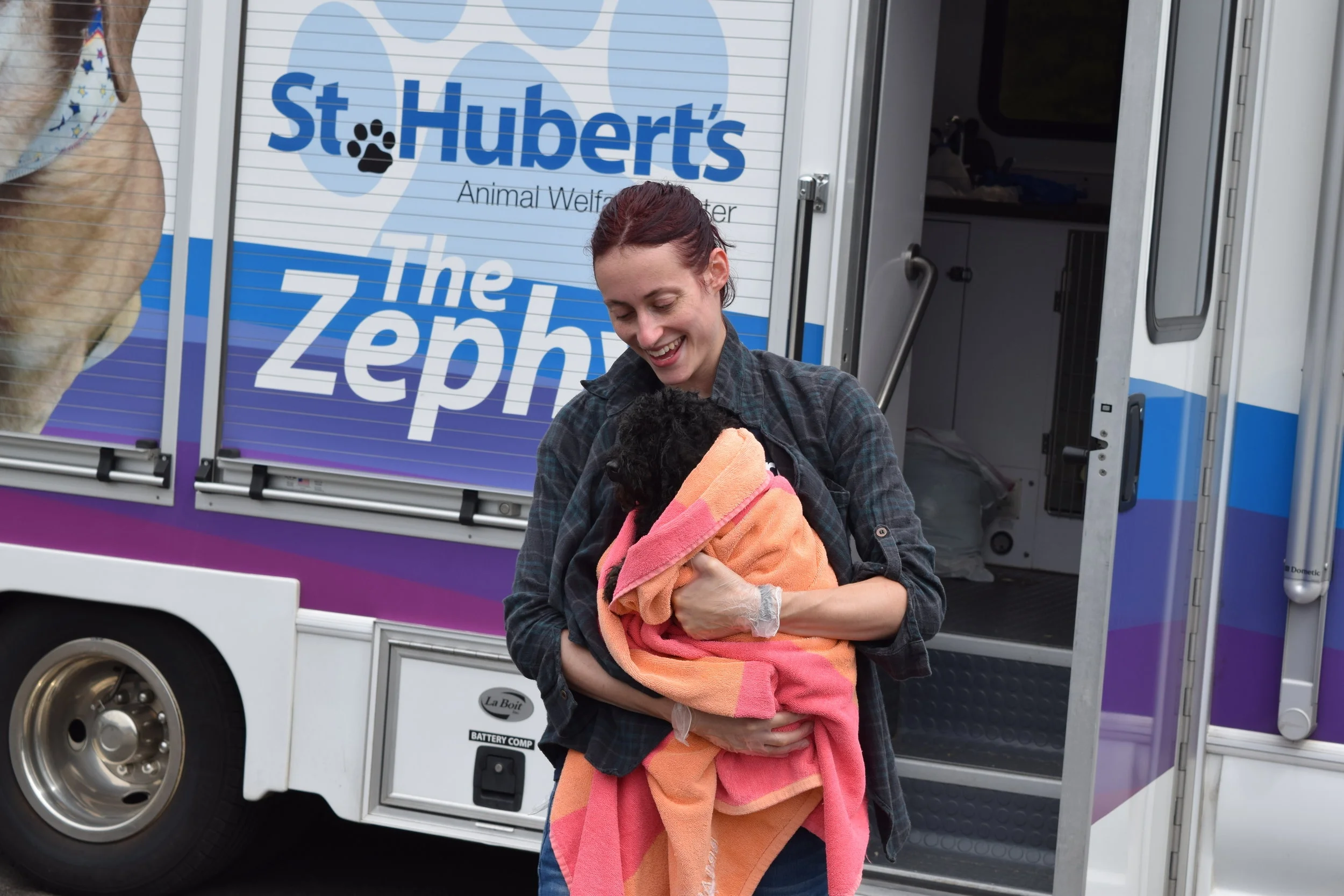
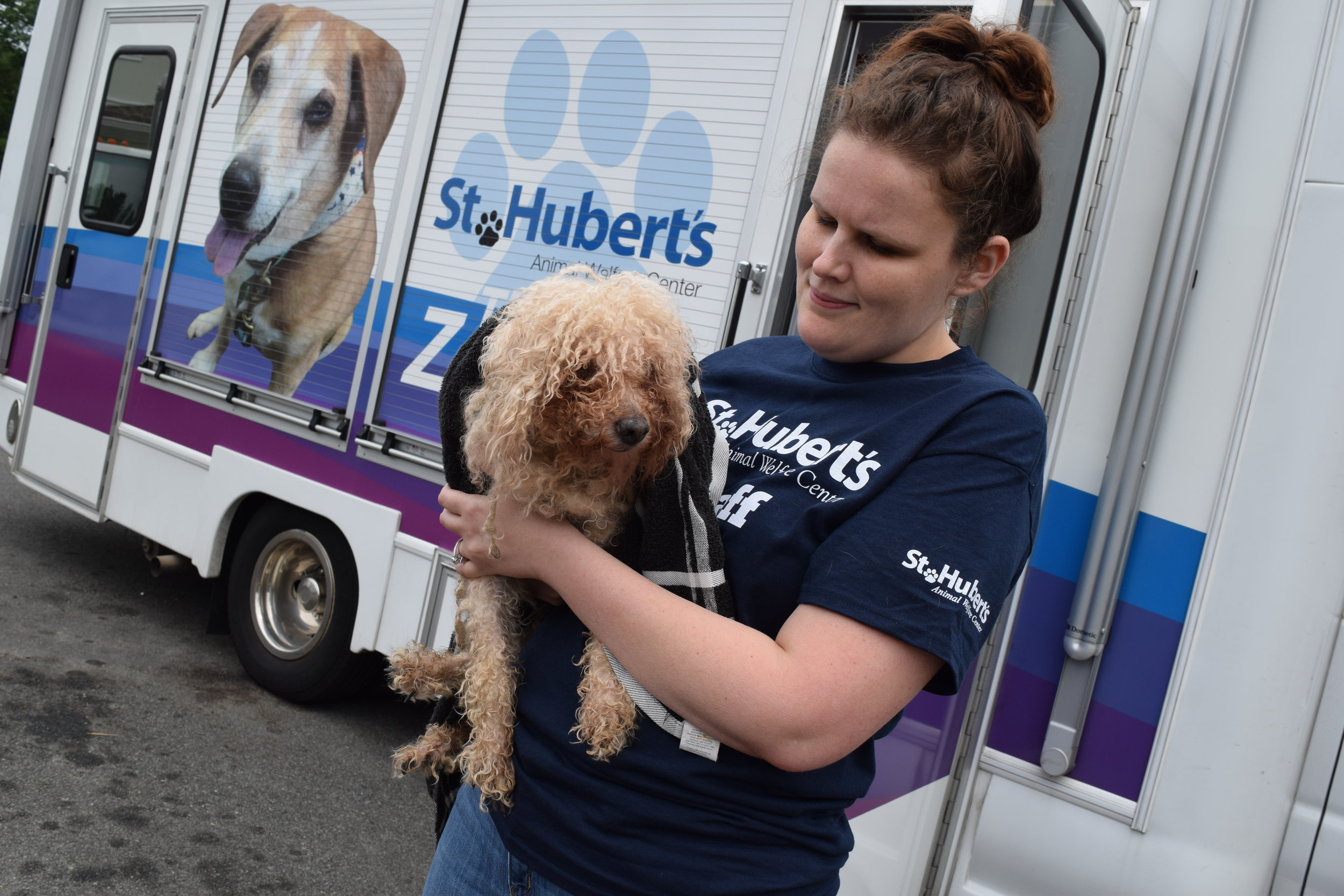
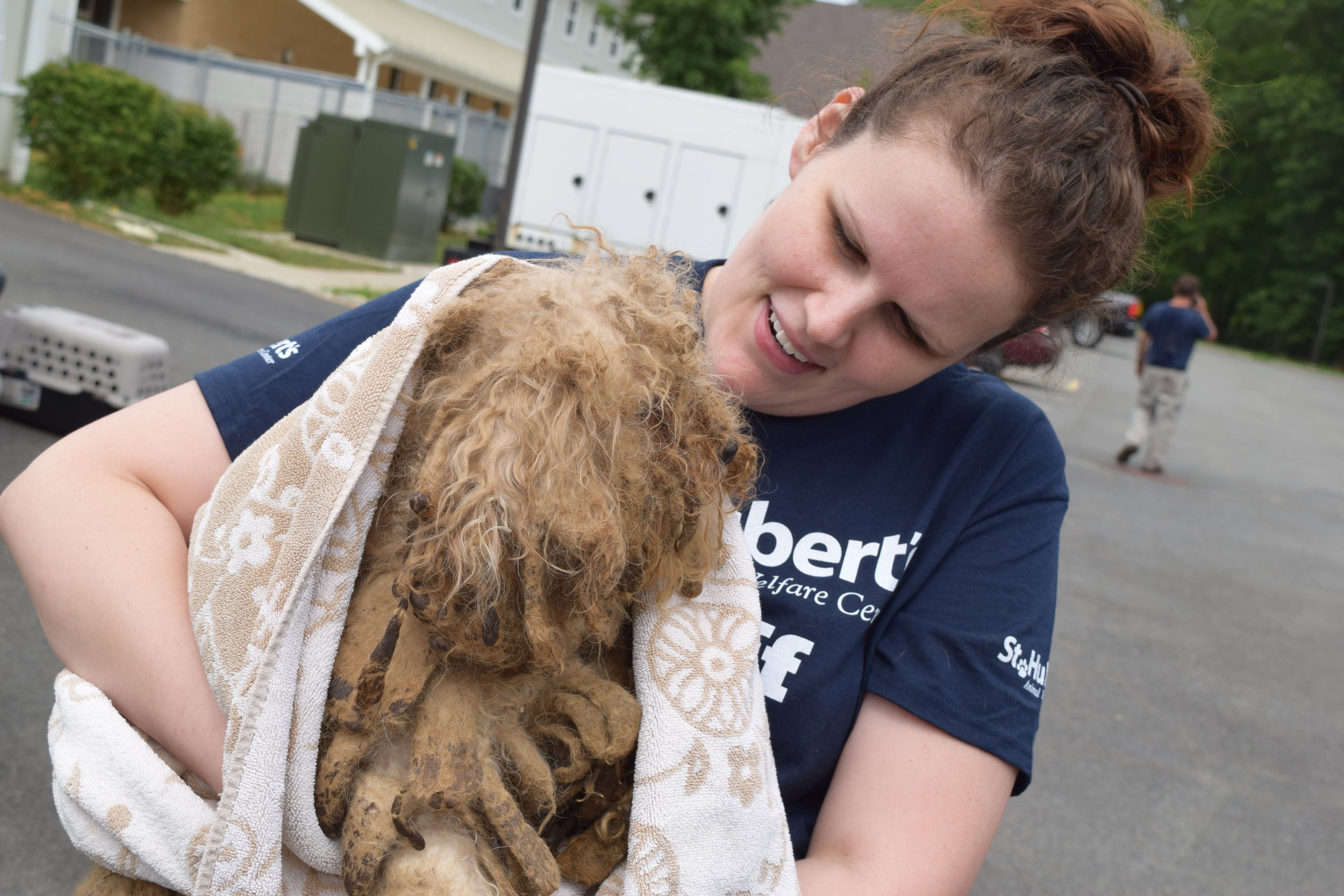
“The willingness of organizations to work together is key to being able to manage cases of this size, and St. Hubert’s agreed to accept all of the dogs unconditionally,” said Heather Cammisa, CEO and President of St. Hubert’s. “Once they’ve all been thoroughly examined by our veterinarian and clinic staff, we will set to work making sure each one gets whatever special treatment is needed.”
This case comes on the heels of a similar case in Cumberland County a week ago. The Cumberland County SPCA removed 25 dogs from substandard care and housing and St. Hubert’s, which has a longstanding Sister Shelter partnership with CCSPCA, still has 13 of the canine victims of that situation in its care and custody as well.
“As these cases unfolded right on top of each other our greatest need right now is monetary donations to support them as we treat and prepare them for placement,” said Cammisa. “Our staff will willingly step up and go the extra mile for this large group of newcomers no matter what they need, and we ask for the community’s generosity to help us with the associated costs.”
Special donations to support the care and treatment for the animals can be made on-line by scrolling to the bottom of this news article, via telephone at 973-377-7094, by mail at P.O. Box 159, Madison, NJ 07940 or in person at any of St. Hubert’s shelters. The organization’s Matching Gift Challenge is in effect until July 31—all contributions will be matched by an anonymous donor up to $85,000.







